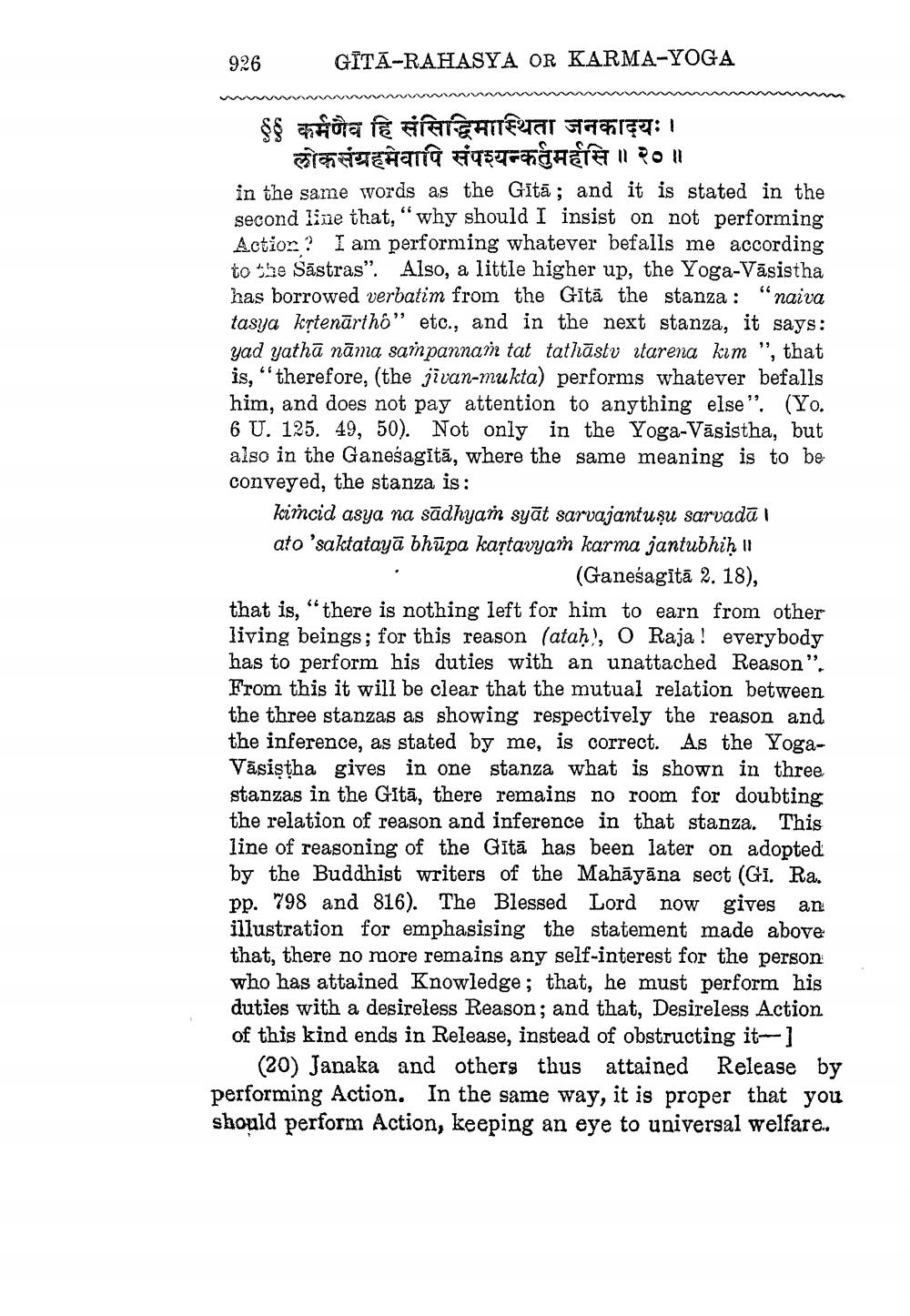________________
926
GITA.-RAHASYA OR KARMA-YOGA
६६ कर्मणैव हि संसिद्धिमास्थिता जनकादयः।
लोकसंग्रह वापि संपश्यन्कर्तुमर्हसि ॥२०॥ in the same words as the Gītā; and it is stated in the second line that," why should I insist on not performing Action ? I am performing whatever befalls me according to the Sāstras". Also, a little higher up, the Yoga-Vāsistha has borrowed verbatim from the Gītă the stanza: “naiva tasya kştenārtho" etc., and in the next stanza, it says: yad yathā nāma sampannan tat tathāstv itarena kim ", that is," therefore, (the jivan-mukta) performs whatever befalls him, and does not pay attention to anything else". (Yo. 6 U. 125. 49, 50). Not only in the Yoga-Vāsistha, but also in the Ganesagātā, where the same meaning is to be conveyed, the stanza is:
kimcid asya na sādhyan syāt sarvajantuşu sarvada ! ato 'saktatayā bhūpa kartavyam karma jantubhiḥ 11
(Ganesagitā 2. 18), that is, "there is nothing left for him to earn from other living beings; for this reason (ataḥ, O Raja! everybody has to perform his duties with an unattached Reason". From this it will be clear that the mutual relation between the three stanzas as showing respectively the reason and the inference, as stated by me, is correct. As the YogaVāsiştha gives in one stanza what is shown in three stanzas in the Gitā, there remains no room for doubting the relation of reason and inference in that stanza. This line of reasoning of the Gītā has been later on adopted by the Buddhist writers of the Mahāyāna sect (Gi. Ra. pp. 798 and 816). The Blessed Lord now gives an illustration for emphasising the statement made above that, there no more remains any self-interest for the person who has attained Knowledge; that, he must perform his duties with a desireless Reason; and that, Desireless Action of this kind ends in Release, instead of obstructing it--]
(20) Janaka and others thus attained Release by performing Action. In the same way, it is proper that you should perform Action, keeping an eye to universal welfare..




